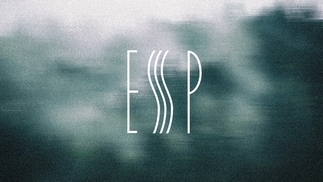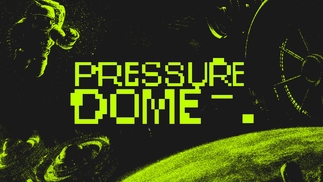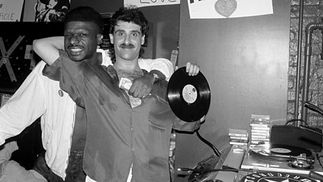The Sound Of: BBE
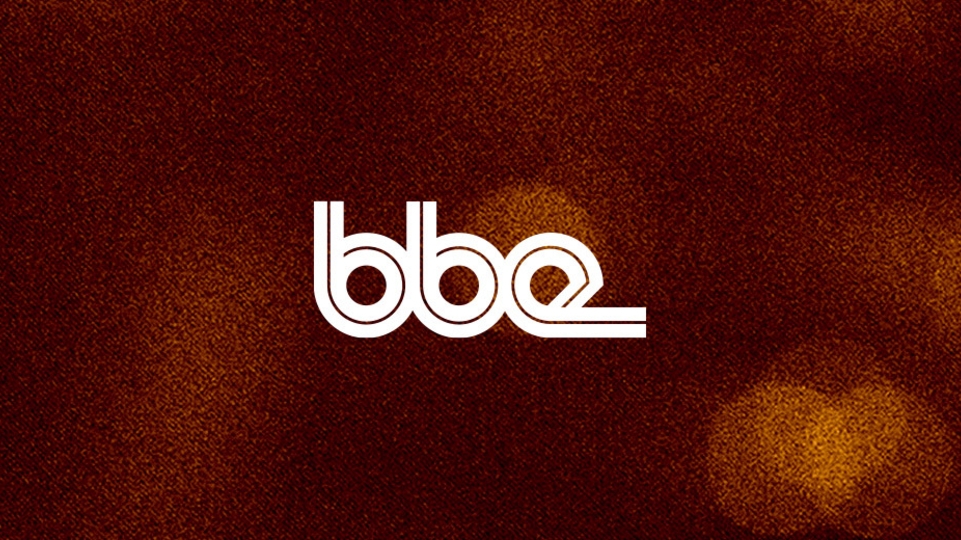
In this month's label focus, The Sound Of, Ben Murphy catches up with Peter Adarkwah, founder of BBE Music, a longstanding haven for hidden gems and all-time classics, from disco, house and jazz to hip-hop and rare groove. Label affiliate DJ Spinna also steps up with a joyous mix of cuts from its sprawling catalogue
BBE has been a guaranteed source of soulful music in its many forms for almost 25 years. From its vital rare groove, funk, disco and jazz compilations, to records by house heavyweights Masters At Work, Osunlade and DJ Deep, and pivotal collections by hip-hop pioneers J Dilla, Marley Marl and Pete Rock, the label has skilfully joined the dots and showed the connections between manifold scenes and styles.
Launched in London in 1996, BBE was created by Peter Adarkwah, a British- Ghanaian DJ and music obsessive. Adarkwah grew up in a musical household, hearing his parents’ expansive record collection of jazz, soul and Ghanaian high life, and tuning into the radio to hear pop and rock.
“It was a very broad base of stuff that was around in the ‘70s,” he says. Soon he was buying his own records, and began to put on house parties with soundsystems he’d build from scratch: “I was building speakers at home on Saturdays and holidays, going to B&Q or Edgware Road where there were hi-fi shops.”
Hypnotised by the rare groove sound that had become a mainstay of London clubs in the ’80s, Adarkwah got his first proper gig playing alongside Norman Jay at The Good, The Bad & The Ugly club. As he began to DJ more often, he saw the rapturous response to the brilliant but difficult to obtain tunes he was playing, and an idea took root in his mind.
“You’re playing stuff and seeing people’s reactions,” he says. “Some people knew the songs but didn’t have the records, and weren’t going to spend £10, £20 on every tune they liked. Off the back of the rare groove scene, some of those records were starting to get expensive. I thought I could somehow license them, put them in a nice package, make them sound good and look good.”
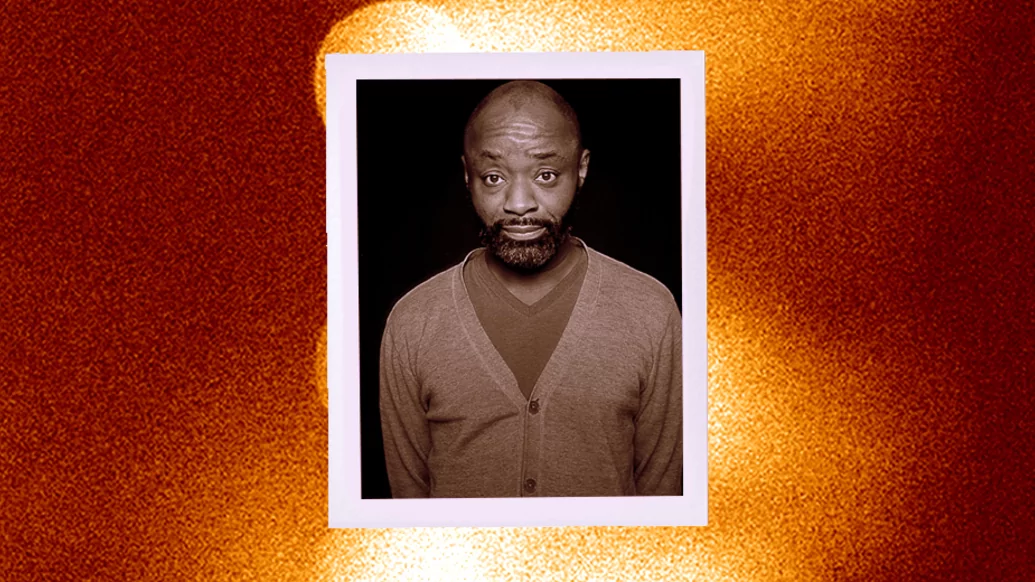
Ditching his law degree and DJing full-time, Adarkwah soon had an opportunity to start his label when a friend sold his newsagent and offered him £10,000. He invested it in the label’s first release, the compilation ‘Stop And Listen Volume 1’, curated by legendary selector Bob Jones. Containing gems like the jazzy hip-hop instrumental ‘Hot Music’ by Soho, boogie favourite ‘Body Fusion’ by Starvue, and the percussion-heavy groove of DJ Food’s ‘Dub Lion (Remake)’, the collection encapsulated BBE’s ethos, “real music for real people”, from the very start. It made a broad selection of hard to find tunes accessible, demystifying the rare groove sound and drawing a connection to its spiritual inheritors hip-hop, acid jazz and house.
“It was a mixtape that everybody could buy legitimately,” Adarkwah says. “I felt that, if you DJ in a club, more people can access the music and you grow your movement — unlike the Northern soul scene, where people were covering up records, and some of that was not very inclusive in terms of spreading the word out. If more people could hear the music, understand it, and consume it, then you can carry on working as a DJ and possibly have a record label too.”
The compilation sold by the bucket-load and from there, the label grew rapidly, with a stylish logo designed by Tommy Badshoes, slick sleeve art, and a prolific release schedule. There was Keb Darge’s ‘Legendary Deep Funk’ series, an excavation into the dusty crates for rare-as-hen’s-teeth seven- inch sides; ‘Strange Games And Things’, a lovingly curated rare groove selection from Adarkwah himself; Kenny Dope’s supreme ‘Hip Hop Forever’ set of golden-era rap gems; and ‘Bite Hard: The Music Of The De Wolfe Studio’, which collected library soundtrack grooves. Disco, jazz and house were well represented, amid occasional 12”s by new artists like Amalgamation Of Soundz. Compilations of hip-hop great Marley Marl’s best Cold Chillin’ productions and a monumental boxset of house heroes Masters At Work’s first decade in operation showed that BBE’s interpretation of rhythm was expansive. With the label, Adarkwah took pleasure in exploring the many branches of music originated and innovated by Black artists.
“I was loving what was coming out of house music, loving what was coming out of hip- hop, the early acid jazz and that mishmash,” he says. “Going to a club and hearing a bit of everything; for me, it was never really about being into one specific thing.”
In 2001, BBE’s remit broadened further, when it released its first new artist album. J Dilla’s ‘Welcome 2 Detroit’ was a monumental record, showing the spectrum of influences of the late hip-hop producer, and helping to cement the legendary status he has today as an artist who utterly transformed the genre.
“I went to see him in Detroit and we discussed musical taste, inspirations and stuff like that,” Adarkwah says. “I went through his house and saw the Ravi Harris album, the second release on BBE, it was on his wall. He didn’t know there was a connection between me and that record. So it felt like there was a kindred spirit there already. We talked about techno, about jazz, about funk, hip-hop: everything. He managed to include all those things on his album, ’cause he could do whatever he wanted.”
A series of ‘Beat Generation’ albums followed from artists such as Pete Rock, Jazzy Jeff and even a pre-fame Will.i.am, while artists known for moving effortlessly between genres like DJ Spinna, King Britt and Questlove all released sets with the label. One of the greatest jazz-funk artists, Roy Ayers, offered up a selection of unreleased treasures from his vault in ‘Virgin Ubiquity’, while more electronically inclined artists Vikter Duplaix, Marc Mac and Osunlade also made originals for the imprint.
More recently, Peter Adarkwah’s Ghanaian heritage has encouraged him to focus on the African continent, putting out gems by high life/Afrobeat icon Ebo Taylor and disco artist Sidiku Buari, among many others.
“I saw other people do it and thought I had missed that boat,” he says. “I genuinely felt disappointed in myself for not trying harder, ’cause I had those connections, some of them family ones, which I’d not really engaged with. Being African, I felt I should be one of the people telling African stories. It’s not even a conversation about cultural appropriation — it’s who I am. I was born in London, but I lived in Ghana from ’75 to ’82. I can speak my language and understand some of what’s going on locally. It’s part atonement, but also a genuine love for what has come out of the continent.”
There are loads of new releases to look forward to in 2021 as the label celebrates its 25th year, with a Gilles Peterson compilation, a host of Japanese jazz reissues and also a remix package of electronic Brit-funk oddity ‘Rude Movements’ by Sun Palace, featuring massive names like Moodymann, François K and Kenny Dope. Meanwhile, label affiliate DJ Spinna has stepped up with a joyous 90-minute mix of cuts pulled from the label's sprawling catalogue. Dig in below.
